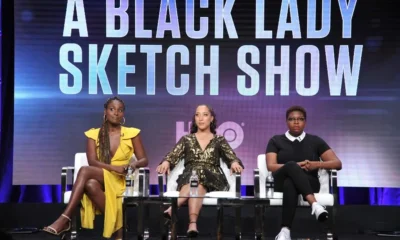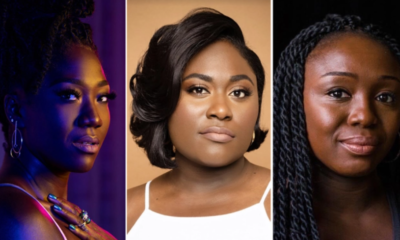Black Women in Entertainment
Black Shakespeare champion working to change views on ‘colour-blind’ casting
As Debra Ann Byrd starts a residency at Stratford-upon-Avon, she remembers how anger at racism drove her to found the Harlem Shakespeare Festival
The head of a US mixed-race theatre company will never forget the racism she encountered when, as a graduating drama student, she was cast as Lady Bracknell in The Importance of Being Earnest. “I was a black woman playing a traditional white role and the rest of the cast were white,” she said. “When the audience came to see the show, some folks were shocked.”
Nor can Debra Ann Byrd forget being told by a teacher that, as a person of colour, she would not have a career in the classics. That was back in 2001. Fired up by the prejudice she encountered, Byrd went on to found the acclaimed Harlem Shakespeare Festival, giving classically trained actors of colour the chance to perform.
While there have been repeated calls for colour-blind casting, Byrd argues that there is no such thing because everyone sees colour. “If the whole cast is white and then there’s one person of colour, that person … will stand out automatically. Whether or not that person is the most talented person on stage, you have to first get past the fact that that person does not look like the others.
“It’s difficult to have such a thing as colour-blind casting because what are you blind to? Are you being blind to the fact that that person is black and they’re really supposed to be white? What should we be blind about? … Unless you just close your eyes and listen, you can’t be blind to the fact that something is different on the stage.”
Byrd spoke to the Observer during Black History Month, before coming to Britain in November. She will spend a few weeks as writer in residence in Stratford-upon-Avon working on her memoir, following an invitation from the Shakespeare Birthplace Trust and Warwick University, whose scholars describe her as inspirational and extraordinary. As an actor and business leader, she has received more than 20 awards and citations.
Dr Paul Edmondson, head of research for the Shakespeare Birthplace Trust, described Byrd as the latest in “a distinguished line of black American actors who have had to make a stand for social justice”. They include Ira Aldridge, the first black Shakespearean actor and the first black theatre manager, of Coventry Theatre from 1828. He broke down racial barriers and his performances of lead roles, including King Lear, inspired the people of Coventry to petition parliament to abolish slavery.
Edmondson said: “Debra Ann is astonishing. She set up the Harlem Shakespeare Festival specifically with black social justice in mind, to give parts to black actors who were being denied the chance in classical repertory because of white domination, as it were.”
This is far from a new issue, Byrd said: “In 1820s New York City, black actors were performing Shakespeare and they were put in jail for doing it. When I first started, it felt like I was coming out of the block already being tripped up.” At drama school, she was advised to “stick to things of my own race and ethnicity and not try to cross the line”. Such experiences, she said, made her “understand that I am …
Please read original article- Black Shakespeare champion working to change views on ‘colour-blind’ casting






















